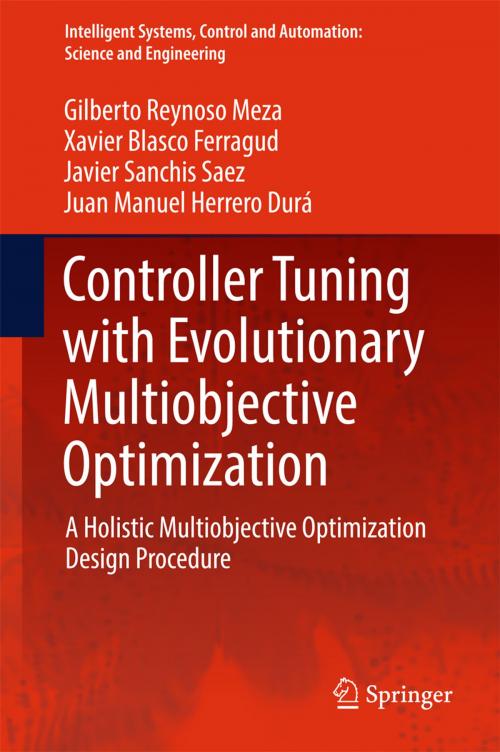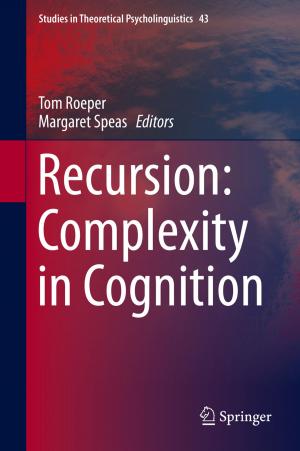Controller Tuning with Evolutionary Multiobjective Optimization
A Holistic Multiobjective Optimization Design Procedure
Nonfiction, Science & Nature, Technology, Automation, Computers, Advanced Computing, Artificial Intelligence| Author: | Gilberto Reynoso Meza, Xavier Blasco Ferragud, Javier Sanchis Saez, Juan Manuel Herrero Durá | ISBN: | 9783319413013 |
| Publisher: | Springer International Publishing | Publication: | November 4, 2016 |
| Imprint: | Springer | Language: | English |
| Author: | Gilberto Reynoso Meza, Xavier Blasco Ferragud, Javier Sanchis Saez, Juan Manuel Herrero Durá |
| ISBN: | 9783319413013 |
| Publisher: | Springer International Publishing |
| Publication: | November 4, 2016 |
| Imprint: | Springer |
| Language: | English |
This book is devoted to Multiobjective Optimization Design (MOOD) procedures for controller tuning applications, by means of Evolutionary Multiobjective Optimization (EMO). It presents developments in tools, procedures and guidelines to facilitate this process, covering the three fundamental steps in the procedure: problem definition, optimization and decision-making. The book is divided into four parts. The first part, Fundamentals, focuses on the necessary theoretical background and provides specific tools for practitioners. The second part, Basics, examines a range of basic examples regarding the MOOD procedure for controller tuning, while the third part, Benchmarking, demonstrates how the MOOD procedure can be employed in several control engineering problems. The fourth part, Applications, is dedicated to implementing the MOOD procedure for controller tuning in real processes.
This book is devoted to Multiobjective Optimization Design (MOOD) procedures for controller tuning applications, by means of Evolutionary Multiobjective Optimization (EMO). It presents developments in tools, procedures and guidelines to facilitate this process, covering the three fundamental steps in the procedure: problem definition, optimization and decision-making. The book is divided into four parts. The first part, Fundamentals, focuses on the necessary theoretical background and provides specific tools for practitioners. The second part, Basics, examines a range of basic examples regarding the MOOD procedure for controller tuning, while the third part, Benchmarking, demonstrates how the MOOD procedure can be employed in several control engineering problems. The fourth part, Applications, is dedicated to implementing the MOOD procedure for controller tuning in real processes.















